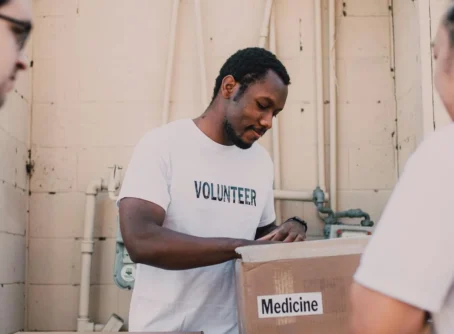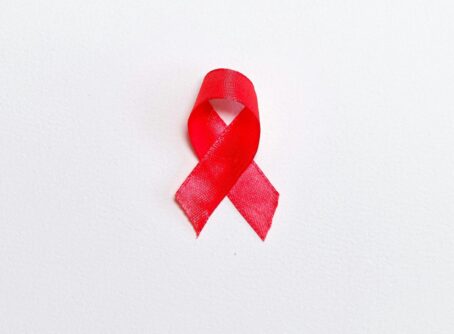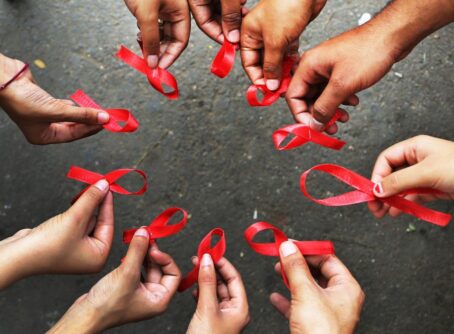
Clinics for the supplemental nutrition program at WIC are set to reopen this summer in Multnomah County. This is good news for residents of Rockwood, Oregon, a community in Multnomah County that greatly depends upon WIC’s services. For those who don’t already know, WIC is the acronym for the Special Supplemental Nutrition Program for Women, Infants, and Children. Multnomah County’s website announced plans to help all WIC recipient families gradually return to in-person office visits by August of this year. This will be majorly advantageous to the area’s WIC program, as WIC office closures created a major obstacle for program beneficiaries.
However, this improvement is not enough—Rockwood is a community full of life and made up of many cultures and despite its cultural vibrancy it still remains a food desert. The Rockwood community requires more services than WIC offices alone can currently provide. Rockwood has become a second home to me this semester as I’ve conducted research with the Rockwood Community Development Corporation for the Center for Public Justice into increasing access to WIC for local immigrant families as part of The Hatfield Prize. Conversations I had with members of the community revealed a surprising lack of grocery stores—restricting their access to healthy food such as fruits and vegetables. Living in a food desert can lead directly to hunger and food insecurity, impacting immigrants and refugees—individuals who are already at risk of health disparities.
As a former WIC recipient myself, I am deeply passionate about ensuring that families who need this assistance program have access to it, especially as Congress considers cutting funding to this family-supportive program.
Before the pandemic, 1 in 11 Oregonians were food insecure, and now that number is significantly higher. Today, 1 in 5 people in Oregon face food insecurity due to the economic impacts of COVID-19, such as the rising cost of food and housing. Further, food insecurity disproportionately affects specific groups and individuals, especially immigrants and refugees.
On June 14th, the House Appropriations Committee marked up an appropriations bill proposing cuts which would include cutting fruit and vegetable benefits for more than five million WIC participants. This cut would result in a 56% decrease in benefits for children and a 70% decrease for adults in 2024. The proposal to cut funds from the 2024 Agriculture, Rural Development, Food and Drug Administration appropriations bill could further exacerbate food insecurity and further harm individuals at risk.
The National WIC Association reported these proposed federal budget cuts alongside statistics which reveal their potentially devastating impact. For example, WIC has experienced a 12% increase in child participation since 2020 and is expected to serve 6.4 million women, infants and children next year. This means that there is currently not enough funding as is to serve the influx in participants for the next fiscal year, even prior to the proposed budget cuts.
In their newest online petition, the National WIC Association writes that WIC has had bipartisan support for decades, providing it with funding to serve its participants, and if Congress fails to increase the investment for next year, WIC could be in danger of similar waitlists experienced in the 90s. (In the almost-decade between 1988 and 1997, WIC participation grew 106%, peaking at 7.41 million participants served in 1997). However, if Congress cuts funding for WIC, not only will there be waitlists, but millions of women and children will be without the needed benefits of WIC.
Through my research, I’ve realized just how many avenues there are through which we can educate ourselves and others about WIC access and eligibility. From conversations with mothers and local community workers, it became clear to me that education about the existence and services of the program was a critical component in the process of enrolling in WIC and getting connected with community workers assisting in the process. Because lawmakers and public servants are constantly updating laws, bills, budgets and resources, it is important to read and to share what is most accurate and up-to-date.
Education has the capacity to affect individuals in needed communities for both potential WIC recipients and other community members. Christians in particular should consider going beyond education by signing petitions (such as the one on the National WIC Associations’ website. I signed it, and you should too) or writing to local congressional members to advocate for family-supportive policies, especially as they relate to WIC.
As a part of my own research, I met with City Councilor Vince Jones-Dixon of Gresham, Oregon, a city neighboring the community of Rockwood. After our conversation about WIC access for immigrant families in Rockwood, I felt encouraged that someone in Rockwood’s local government hears the needs of our community and is actively participating in moving to meet those needs. Realistic change is possible, and it is our responsibility to pursue it.
Following Christ or neglecting the tenets of the Christian faith finds its difference in the action of individuals who claim to love Jesus. Following Christ looks like living as he did. Isaiah 1:17 says, “Learn to do good; seek justice, correct oppression; bring justice to the fatherless, please the widow’s cause.” As followers of Jesus, it is our responsibility to care for those in need, including those experiencing oppression, injustices and poverty.
Psalm 146:9 says, “The LORD protects the foreigners among us. He cares for the orphans and widows …” As explored in my report, health disparities negatively and disproportionately affect immigrants and refugees. Followers of Jesus ought to care about this issue. Care is commanded of us because it is the core of Jesus’ character and ministry. If we want to follow in Jesus’ footsteps, we must care for immigrants and refugees. One way that we can do that is by advocating for family-supportive programs such as WIC.
Although I am now a graduate of Multnomah University, I want to encourage all readers, and specifically students, to engage with the residents of their communities out of their love of neighbor and love for Christ. I sat in awe at various times, learning how parents, neighbors and laborers serve their community. I not only thank Rockwood for accepting me into their community and partnering with me on this research, but also for teaching me what the care of the Lord looks like.
Kailani West (‘23) is a recent graduate from Multnomah University, and majored in global studies with a concentration in culture and diversity. She served as the student intern for the school’s Voices of Scholars program and the Global Outreach committee while in college and now teaches English at Pamoja House International.





